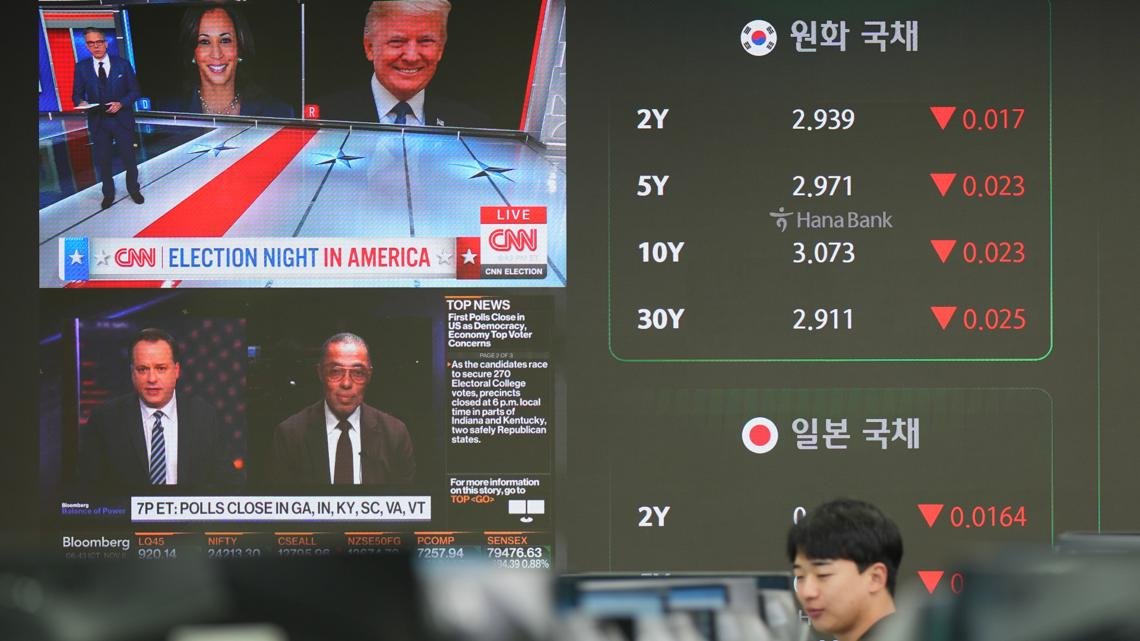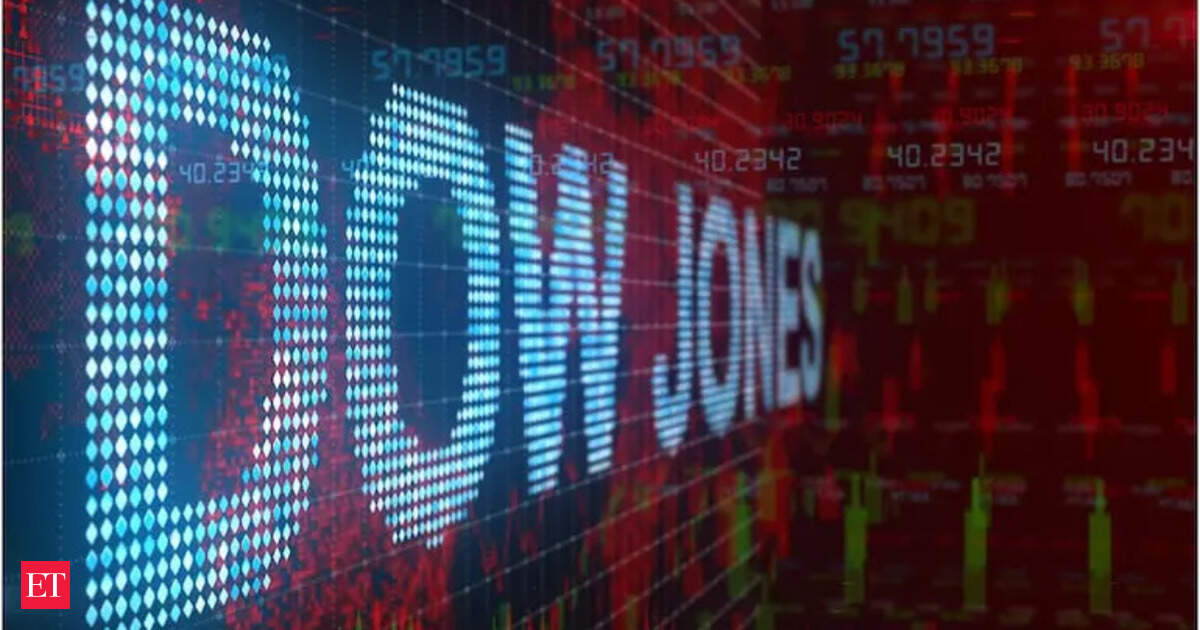The expectation is that a victory by Trump will lead to faster economic growth and more market-friendly policies.


HONG KONG, — Share prices and bond yields surged Wednesday as the Republican party gained control of the Senate and former President Donald Trump closed in on the 270 electoral votes needed to return him to the White House.
The full results of Tuesday’s election may not be known for days as officials count all the votes, but investors already were repositioning in anticipation of sweeping gains by the Republicans, who took control of the Senate for the first time in four years. The results of the House elections were not yet finalized.
Trump won the battleground state of Georgia, a Republican stronghold that had voted for Democrats in 2020. A win in North Carolina helped Trump narrow Vice President Kamala Harris’ pathways to victory. Clinching Pennsylvania took him within 3 electoral votes of the 270 votes needed to become the next president.
The expectation is that a victory by Trump will lead to faster economic growth and more market-friendly policies.
Auguring gains for U.S. markets on Wednesday, the future for the S&P 500 gained 1.9% and that for the Dow Jones Industrial Average was up 2.2%. The Nasdaq composite future was 1.7% higher.
The price of bitcoin jumped nearly 8% to a record $75,345.00, as investors bet on a victory for Trump, who has pledged support for cryptocurrencies. It later fell back to $73,720.00.
Bond yields also surged, with the yield on the 10-year Treasury climbing to 4.4% from 4.28% on Tuesday.
“The markets are scrambling to figure out what happens next, but for the time being, the market is pricing in a higher growth and higher inflation outlook,” Peter Esho of Esho Capital said in a commentary.
In early European trading, Germany’s DAX climbed 1.3% to 19,503.40, while the CAC 40 in Paris advanced 1.9% to 7,550.36. Britain’s FTSE 100 was up 1.4% at 8,285.06.
Markets worldwide have been fixated on what the election will mean for U.S. economic, monetary and trade policy, as well as geopolitics. A split in Congress between political parties would complicate policymaking, and a White House headed by Trump could have far reaching ramifications given his support for sharp increases in tariffs, especially on imports from China.
The broad U.S. stock market has historically tended to rise regardless of which party wins the White House, even if each party’s policies can help and hurt different industries’ profits.
Since 1945, the S&P 500 has risen in 73% of the years where a Democrat was president and 70% of the years when a Republican was the nation’s chief executive, according to Sam Stovall, chief investment strategist at CFRA.
The S&P 500 has risen nearly 70% since the 2020 election brought President Joe Biden into office. It rallied to records as the U.S. economy bounced back from the COVID-19 pandemic and managed to avoid a recession despite a jump in inflation.
In Asian share trading Wednesday, Japan’s Nikkei 225 index gained 2.6% to 39,480.67, while the Kospi in Seoul shed 0.9% to 2,553.90.
Australia’s S&P/ASX 200 rose 0.8% to 8,199.50.
Hong Kong’s Hang Seng index fell 2.2% to 20,538.38, ending a three-day rally, as investors sought safe-haven assets amid the uncertainties surrounding the U.S. election. The Hang Seng Tech Index slipped 2.5%, while the Shanghai Composite index edged 0.1% lower, to 3,383.81.
Trump has vowed to sharply raise tariffs on imports from China and other countries, darkening the outlook for Chinese exporters at a time when Beijing has relied heavily on ramping up manufacturing to try to revive its slowing economy.
“Positive outcomes for Harris are expected to boost Asian assets, while Trump gains may exert downward pressure,” Anderson Alves of ActivTrades said in a commentary.
Chinese markets have been among the most active in the region this week as leaders hold a meeting of the Standing Committee of the National People’s Congress, the country’s legislature.
The gathering is expected to deliver more moves to help spur faster economic growth and resolve mounting levels of local government debt. On Tuesday, upbeat comments by Premier Li Qiang about the potential for both fiscal and monetary policies helped lift share benchmarks in Hong Kong and Shanghai by more than 2%. Li also expressed confidence that China will attain its growth target of about 5% this year.
In other dealings early Wednesday, U.S. benchmark crude oil lost 90 cents to $71.09 per barrel. Brent crude, the international standard, gave up $1.00 cents to $74.53 per barrel.
A Trump win was expected to bolster the value of the dollar, which surged to 154.08 Japanese yen from 151.62 yen late Tuesday.
The euro slipped to $1.0756 from $1.0931.















